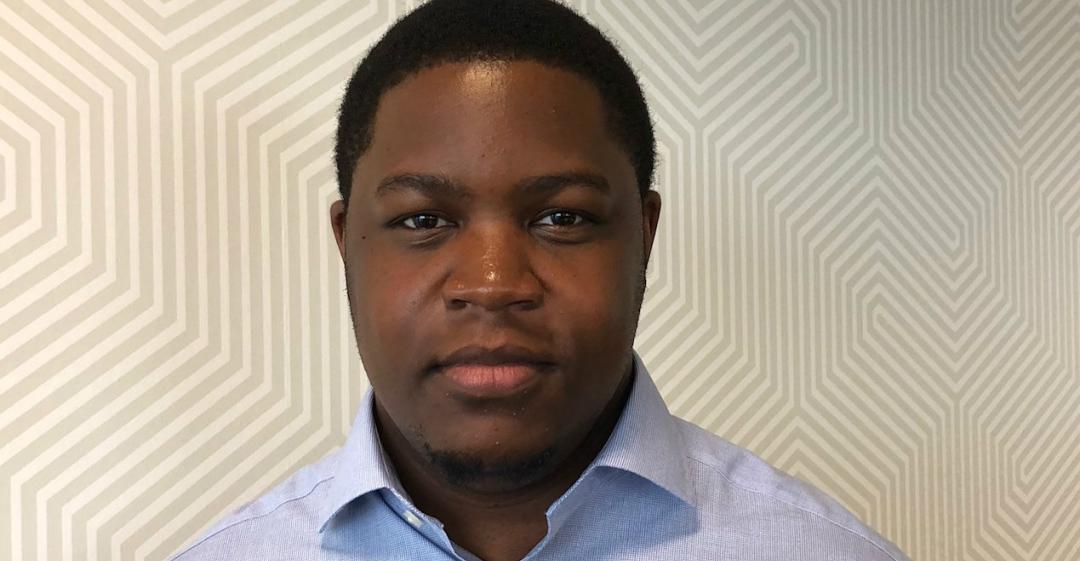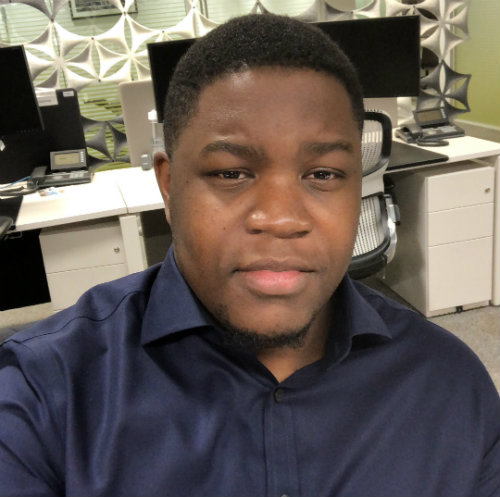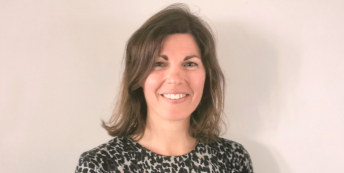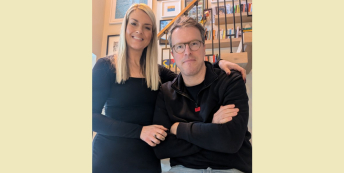“I battled the worst case of imposter syndrome I've ever experienced.”

What work were you doing previously?
I was working as a Project Support Officer in the NHS.
I'd been there for around ten years.
What are you doing now?
I'm a data analytics consultant.
I help various clients make sense of their data and use the reports that I create to make data-driven business decisions.
Why did you change?
I was writing documents and taking minutes in meeting on a near-daily basis.
I got to the point in my project management career where I wanted more of a technical challenge. No matter how many different projects I worked on, I still had a yearning for something to do with one of the many branches in the field of IT.
When was the moment you decided to make the change?
I'd managed to land a role supporting a project for a Technology and Informatics department in the NHS.
The team was split between the project managers who sourced the work on one side, and the informatics team, which solved all of the analytics puzzles for the work that was brought in, on the other.
A few months into the role, a few of the people from the informatics team departed to progress with their careers elsewhere. I saw my opportunity to get myself involved in supporting the informatics team with some of their work.
Fortunately, I had a great director at the time who believed in developing skills in the team and he gave me the opportunity to learn how to do data analytics when I had free time away from the projects that I was supporting.
He saw that I took an immediate liking to a particular tool that my informatics colleagues used, Tableau, and he allowed me a few hours a week to focus on developing my Tableau skills.
Are you happy with the change?
So far, yes!
In learning Tableau I've had the opportunity to learn one of the most in-demand analytics tools. I've learnt so much about how businesses use the data they have to drive business in the right direction. And, best of all, the work has allowed me to live and work in Germany for a whole year, which is an experience I don't think I would ever have had if I'd stayed doing project management in healthcare.
Also, the mix in the types of projects I am working on tends to keep me on my toes; I'm constantly learning new tools and techniques in order to reach a goal.
What do you miss and what don't you miss?
Based on my experiences so far, I miss the culture and diversity of the NHS workforce.
It's a tricky subject but the NHS has a very culturally diverse workforce, no matter which hospital / office you're based at.
Coming from a BME background this has always taken the working experience to a whole new level for me – you get to learn about different cultures, bond over shared experiences, and have multitudes of people you can relate to.
I don't miss the repetitiveness of the work that I was doing. The project teams in the NHS tend to follow a standard process. This became boring quite quickly.
How did you go about making the shift?
I decided to sign up for The Data School, a four-month programme which trains data analytics consultants.
The transition was moderately seamless; I managed to finish my role in the NHS on a Friday and start at the school the following Monday.
What didn't go well? What wrong turns did you take?
Everything happened so fast between the time of handing in my notice to my NHS employer and starting at the Data School.
Some work didn't get completed in time which was mostly down to my bad time management at the time.
How did you handle your finances to make your shift possible?
I had to take quite a big pay cut to join the school, but the salary we were given was still sufficient for me to live comfortably.
If it wasn't for the fact that you effectively get paid to learn during the four months of training, I wouldn't have taken up the opportunity.
What was the most difficult thing about changing?
As someone who's been out of formal education for around eleven years, I found 'learning how to learn', as an adult in an intense classroom environment, very difficult to adjust to.
Even more so due to the fact that I was the only one in my cohort who hadn’t obtained a degree in a subject involving some sort of technical analysis.
What help did you get? 
Fortunately, the programme offered one of the best support networks that I've come across in my working life.
I had access to colleagues who'd previously been through the same process and who could relate to the struggles of intensive learning. And I was taught by some of the best in the industry when it comes to Tableau and Alteryx.
If I had any problems, there were over 20 people I could turn to who would take time out of their own day to support and mentor me.
What resources would you recommend to others?
If there is a particular area that you are looking to get into, I would advise finding any social meetup groups that take place in your area.
Use that as a place to learn from. Network with people in that industry which could open up avenues for you to get your foot in the door.
What have you learnt in the process?
Where do I even begin?
I've learnt best practice and how to become a great consultant and analyst.
I've also learnt how to become more than just an analyst. I've been taught to teach, to lead, and to present to groups as well as colleagues of all levels of seniority.
And I've learnt a lot about my persistence as an individual.
I struggled greatly throughout the whole process, even doubting whether I could make it to the end of the training. I battled with the worst case of imposter syndrome I've experienced in my career on a daily basis, continually second guessing my achievements and how I'd managed to get through each day.
I was even questioning how I'd managed to get onto such a good scheme. I felt like I was lousy at mathematics, and yet I was somehow getting through advanced calculations without numerous errors.
What do you wish you'd done differently?
Honestly, I wish I'd taken more time to prepare for the transition.
Finishing on a Friday and starting on Monday gave me no real downtime to get ready for what the initial four months of training would bring.
What would you advise others to do in the same situation?
If ever you run into a similar situation, keep on pushing.
Things may not go your way throughout the transition but make sure you have a set target that you can persistently progress towards.
Also, remember that you're never too old to change careers, so don't let that be a barrier to you achieving your goal.
Thanks to The Data School for this story. To find out more about shifting into data analysis work, visit www.thedataschool.co.uk.
Also, find out more about The Data School in our Retraining Directory.
What lessons could you take from Marcus's story to use in your own career change? Let us know in the comments below.



